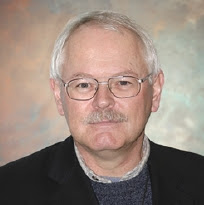 In an inspiring work on loneliness, Fr. Roland Rolheiser refers to all humans as lonely creatures and thereby are always somewhat “homeless.” In his book, The Restless Heart, we discover a strong premise that exposes each of us for what we really are - poor nomads and wanderers. “Homeless” is no longer just a title we give to those physically lost on streets and sleeping in alleyways. Rolheiser states, “We are built to wander, to be restless and lonely. Accordingly, we should not be surprised if we find ourselves incurably in that condition.” The nomad in each of us is always on a journey that is never quite fulfilled no matter how hard we try because we are ultimately built by God for union with the Infinite. St. Augustine agrees. He states in possibly the most quoted thought of his writings, “Our hearts are restless until they rest in thee.”
In an inspiring work on loneliness, Fr. Roland Rolheiser refers to all humans as lonely creatures and thereby are always somewhat “homeless.” In his book, The Restless Heart, we discover a strong premise that exposes each of us for what we really are - poor nomads and wanderers. “Homeless” is no longer just a title we give to those physically lost on streets and sleeping in alleyways. Rolheiser states, “We are built to wander, to be restless and lonely. Accordingly, we should not be surprised if we find ourselves incurably in that condition.” The nomad in each of us is always on a journey that is never quite fulfilled no matter how hard we try because we are ultimately built by God for union with the Infinite. St. Augustine agrees. He states in possibly the most quoted thought of his writings, “Our hearts are restless until they rest in thee.”Homelessness is not just a physical state of being lost and lonely under a bridge somewhere. It is a psychological/spiritual emptiness, loneliness and restlessness built inside of each of us by God to inspire us to seek after Him. So what does psychological and spiritual homelessness look like? It begins with the fact that each of us goes through life always experiencing dissatisfaction and being unfulfilled. Think about when you prefer a window over an aisle seat, prefer it to be hotter or cooler in the room or prefer New York over Los Angles. We are always in a state of seeking personal satisfaction and fulfillment. It is at the root of why frequently in our lives we believe, "the grass is greener on the other side of the fence."
Thus, the “homeless” state of mind is expressed in our own personal obsessions, whims, anxieties, compulsions and addictions. Personal homelessness is demonstrated in each in a variety of ways, such as: Being a workaholic, gym addict, packrat, shopaholic, Internet addict, O.C.D., neurotic user of cell phones/email/TM/IM, collector of anything, big talker, recluse, alcoholic, drug user, porn or sex addict - well, the list goes on and on. In this respect we are one big “happy” dysfunctional homeless family and must treat each other with compassion and concern. We must help to bring each other home. Each of us is a direct brother or sister of those who are physically homeless. Like them, each of us is nomadic and seeking rest but wake up each day to discover it is always elusive.
In summary, Rolheiser states, “We are constantly being driven by our loneliness to seek more and more love, more and more knowledge, and more and more beauty. We have an inbuilt loneliness that makes us longing, yearning, grasping, and hungry creatures. Our aspirations for love and knowledge are limitless, yet our capability of fulfilling these aspirations is always limited, no matter how good a situation we are in. For this reason, we are this side of heaven, always lonely.” And, for that matter, we are always homeless. Because, as St. Augustine states and it is worth repeating, “Our hearts are restless until they rest in thee.”
Please scroll down and vote in the polls. Your opinion counts!





















3 comments:
Makes sense to me.
Rolheiser's thesis appears to function as the backdrop of Biblical History. The archetypal man and woman of Genesis, Adam and Eve, are driven from their original home - made homeless wanderers. Abraham the father of faith is a wandering Aramean, looking for the Promised Land. The Israelites, freed from Egyptian bondage, are nonetheless homeless wanderers for forty years, again looking forward to their final destination. Jesus and his disciples have "no place to rest [their] head[s]." St. Paul, the Apostle, wanders around the Mediterranean, announcing the both present and coming Kingdom.
Anonymous, you've summarized a very powerful thread spanning the totality of human history. Well said - thank you!
Post a Comment